Future Insights: Using Automotive Supply Chain Analytics Platforms to Predict Disruptions
The advent of advanced automotive supply chain analytics platforms has ushered in a new era where businesses rely on actionable insights derived from sophisticated data analysis.
The demand for predictive analytics solutions has surged as automotive companies grapple with the complexities of globalized supply chains, volatile market conditions, and ever-changing consumer preferences. Traditional approaches centered around manual forecasting and reactive problem-solving are needed to meet the challenges posed by modern supply chain dynamics.
Advanced analytics platforms represent a paradigm shift in managing automotive supply chains. These platforms offer unparalleled predictive capabilities by harnessing the power of AI algorithms and processing vast amounts of data in real time. They enable companies to anticipate potential disruptions, optimize inventory levels, and enhance supply chain resilience.
With these platforms, automotive businesses can gain insights into demand forecasting, identify potential bottlenecks, and optimize resource allocation. By leveraging predictive analytics, organizations can proactively address issues before they escalate, minimizing risks and maximizing operational efficiency.
In an industry where timing and precision are paramount, advanced analytics platforms empower automotive companies to make informed decisions that drive success. By embracing these solutions, businesses can position themselves at the forefront of innovation and gain a competitive advantage in the ever-evolving automotive supply chain landscape.
Let’s look at some of these trends, the challenges they solve, and a bit about our Automotive Supply Chain Analytics Platform, called Nostradamus.
Let's Connect
Contact our experts to learn how we can help you accelerate insights.
Trends in the Market
The automotive industry finds itself amidst a significant paradigm shift, largely driven by the rapid pace of technological advancements and the ever-evolving demands of consumers. In response to this dynamic landscape, companies in this sector increasingly turn to analytics platforms to gain a competitive edge.
One of the primary drivers behind this shift is the growing complexity of the automotive market. Trends such as just-in-time manufacturing, globalization, and sustainability are reshaping traditional business models and supply chain dynamics. As a result, data-driven decision-making has become imperative across all facets of the automotive industry.
Just-in-time manufacturing practices, for instance, emphasize the importance of optimizing production processes to minimize waste and enhance efficiency. Analytics platforms play a crucial role in enabling manufacturers to analyze vast amounts of data in real time, allowing them to identify areas for improvement and make informed decisions to streamline operations.
Globalization has also significantly impacted the automotive industry, leading to more complex supply chains and increased competition. Analytics platforms help companies navigate this complexity by providing insights into market trends, consumer preferences, and supplier performance across various regions. This enables automotive companies to adapt their strategies accordingly and remain competitive globally.
Furthermore, sustainability has emerged as a key concern for consumers and regulators in the automotive industry. Analytics platforms enable companies to track and analyze environmental metrics throughout the supply chain, from raw material sourcing to end-of-life disposal. By leveraging data-driven insights, automotive companies can identify opportunities to reduce their environmental footprint and meet evolving sustainability standards.
Challenges in the Industry
While the automotive sector gains significant benefits from optimizing its supply chain, several obstacles hinder efficiency and effectiveness. These challenges encompass volatile market conditions, frequent supply chain disruptions, complexities in inventory management, and stringent regulatory compliance requirements. Traditional approaches have often needed to address these challenges, resulting in inefficiencies adequately and missed opportunities for improvement.
Volatile market conditions pose a significant challenge for automotive companies, as fluctuating demand and unpredictable economic factors can impact production schedules and inventory levels. Additionally, supply chain disruptions, such as natural disasters or geopolitical events, can disrupt the flow of materials and components, further complicating supply chain management efforts.
Inventory management complexities also contribute to inefficiencies within the automotive supply chain. Balancing inventory levels to meet fluctuating demand while minimizing carrying costs requires sophisticated forecasting and inventory optimization techniques. Traditional methods may need help to adapt to dynamic market conditions, resulting in excess inventory or stockouts.
Furthermore, regulatory compliance adds another layer of complexity to supply chain management in the automotive sector. Strict regulations governing product quality, safety standards, and environmental requirements necessitate robust compliance processes and documentation. Failure to comply with regulatory requirements can lead to costly penalties and reputational damage.
Addressing these challenges requires innovative solutions and a shift towards more advanced supply chain management practices that leverage technology, data analytics, and strategic partnerships to overcome obstacles and drive improvements in efficiency and performance.
Current Solutions
Numerous companies within various industries continue to rely on manual processes or outdated legacy systems to manage their supply chains, resulting in limited visibility and agility. Recognizing the need for improvement, some organizations have begun integrating analytics solutions into their operations to enhance forecasting accuracy and improve risk management capabilities. Despite these efforts, many of these approaches still need to improve in providing the predictive capabilities necessary to proactively anticipate and effectively mitigate supply chain disruptions.
The reliance on manual processes or legacy systems hampers organizations’ ability to gain comprehensive visibility into their supply chains. This lack of visibility makes it challenging to identify potential risks and opportunities for optimization, leading to inefficiencies and missed opportunities for improvement. Additionally, outdated systems may need help to handle the vast amounts of data generated by modern supply chains, limiting their ability to provide timely and accurate insights.
In response to these challenges, some companies have turned to automotive supply chain analytics platforms to augment their capabilities. By leveraging advanced analytics techniques, organizations can improve their forecasting accuracy and gain deeper insights into supply chain dynamics. These solutions enable companies to understand demand patterns better, identify potential bottlenecks, and optimize inventory levels to meet customer needs more effectively.
However, despite the benefits of analytics solutions, many organizations still need help achieving proactive supply chain management. While these solutions can provide valuable insights into past and present supply chain performance, they may need more predictive capabilities to anticipate future disruptions accurately. As a result, companies may need help to respond effectively to unexpected events, leading to delays, increased costs, and customer dissatisfaction.
Introducing The Ceres Nostradamus Platform and Its Application in the Automotive Industry
Ceres Nostradamus is an evolution in automotive supply chain analytics. Powered by advanced AI algorithms and analyzing millions of data points in real time, Nostradamus delivers unparalleled predictive capabilities. By leveraging machine learning and predictive analytics, Nostradamus enables companies to anticipate disruptions, optimize inventory levels, and enhance overall supply chain resilience.
With its cutting-edge features, including digital twins, seamless integration with millions of external and internal data sources, rapid deployment within weeks, and robust API capabilities, Nostradamus empowers organizations to stay ahead of the curve.
Accurately forecasting demand, identifying potential bottlenecks, and recommending proactive measures are just some capabilities Nostradamus brings. By harnessing the power of advanced analytics and predictive modeling, automotive companies can anticipate market trends, optimize production schedules, and streamline operations with unprecedented precision.
Nostradamus is not just a tool for reactive problem-solving; it’s a proactive solution that enables organizations to mitigate the impact of natural disasters, address supplier disruptions before they escalate, and proactively optimize their supply chain processes. With actionable insights, automotive companies can make informed decisions that drive tangible results and position them for long-term success in a rapidly evolving market landscape.
Ready to Take a Test Drive?
Ready to revolutionize your automotive supply chain? Schedule a free demo with Ceres today and discover how Nostradamus can transform your operations.

The benefits of artificial intelligence are plenty, and now is the best time for your business to leverage them.
Discover how it all comes together with our Real-Time Visibility platform that can connect your entire operations.

